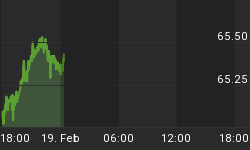There's nothing like a global pandemic to put fashion into perspective. It’s simply not fashionable to be fashionable anymore.
Among the many ways the COVID-19 pandemic is and will change our lives forever is by refocusing our attention on things that appear to matter more than clothing and accessories.
Just until a couple of weeks ago, many storefronts were completely boarded up or otherwise notifying customers that they hope to open soon, or, in some cases, never again.
And while much of the talk has been about saving small businesses, the luxury industry itself is in big trouble, and some high-end brick-and-mortar boutiques may close their doors forever.
The pandemic has hurt many retailers throughout the country, including the likes of J. Crew and Neiman Marcus, which both filed for bankruptcy, along with lower-end JCPenney, which filed for Chapter 11 bankruptcy protection in mid-May and started closing its stores this week, along with jeans maker True Religion.
Now, luxury boutiques are going head-to-head with landlords to break their leases early--especially in New York City.
Italian fashion brand Valentino is suing its landlord, hoping to break its lease in NYC’s Fifth Avenue early.
In its lawsuit, Valentino said that “even in a post-pandemic New York City (should such a day arrive), the social and economic landscapes have been radically altered in a way that has drastically, if not irreparably, hindered Valentino’s ability to conduct high-end retail business at the Premises.”
Victoria’s Secret is also seeking to annul one of its largest and most expensive retail leases. The company pays over $10 million a year in rent for the store it occupies in Manhattan’s Herald Square.
On the flip side of this, landlords are also suing tenants.
Last month, mall owner Simon Property Group sued the Gap for three months of unpaid rent that totaled nearly $66 million for nearly 400 locations.
The pandemic has taken a huge bite out of the finances of malls and buildings owners, with Simon Property Group shares down more than 50% this year.
According to a March report from the Boston Consulting Group, luxury brands should brace for a decline in sales between $85 and $120 billion in 2020, or around 29.2% of the $350 billion luxury market.
The fashion and luxury category as a whole will lose between $450 and $600 billion in sales.
Experts predict that U.S. retailers could announce between 20,000 and 25,000 closures. More than half of those inside mainstream malls.
In 2017, retailers shuttered a record-breaking 8,000 stores, or 102 million square feet of store space. The year 2018 proved far worse after another 155 million square feet of space followed suit. The staggering rate of store closures that rocked the retail industry continued in 2019, with retailers setting a new record for store closings, a total of just above 9,000.
In the meantime, luxury’s only saving grace may be what started as a test project last year. Just prior to the pandemic, several big cities started testing malls designed to target upper-middle class, millionaires and wealthy tourists.
Opened a year ago, Hudson Yards in New York City features many high-end brands such as Tiffany & Co, Cartier, Dior…and the management said that 12 million people visited since.
High-end malls in other parts of the United States were thriving--pre-pandemic--as well. One of them, Miami Beach located Bal Harbour Shops, just announced a $550 expansion.
Such centers were all closed in March but recently reopened but the visitors and office tenants are being scanned for COVID using some of the latest identity technology.
So, if luxury survives the fashion culling, it will likely be moved to one of these test malls for the wealthy, while Manhattan’s streets become high-end museums.
By Tom Kool for Safehaven.com
More Top Reads From Safehaven.com:

















